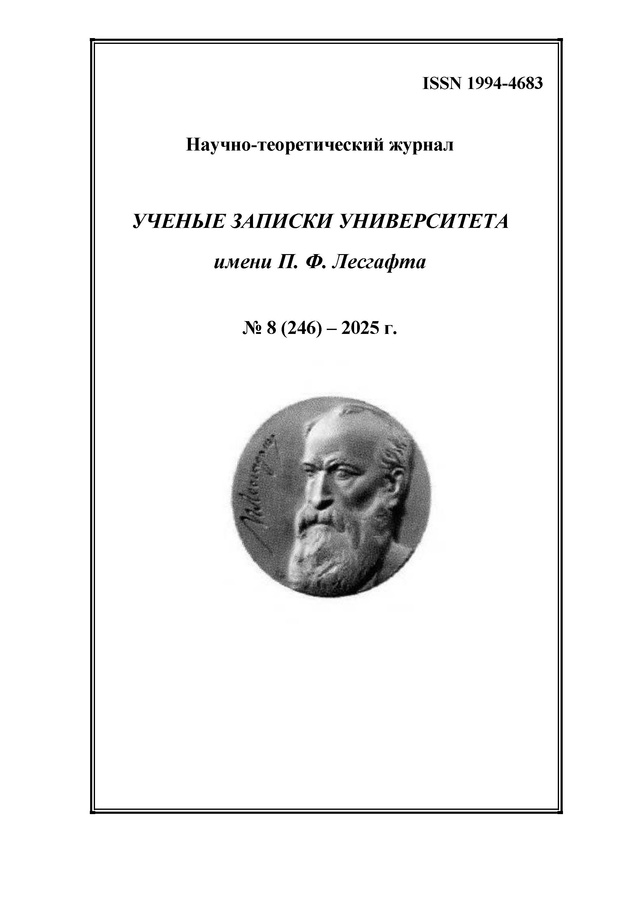THE APPLICATION OF VARIOUS METHODS FOR ACTIVATING STUDENTS' COGNITIVE ACTIVITY IN THE COURSE 'INTRODUCTION TO THE SPECIALTY'
- 作者: Bidolenko L.A.1
-
隶属关系:
- 期: 编号 8 (2025)
- 页面: 223-229
- 栏目: Methodology and technology of vocational education
- URL: https://journal-vniispk.ru/1994-4683/article/view/309667
- DOI: https://doi.org/10.5930/1994-4683-2025-223-229
- ID: 309667
如何引用文章
全文:
详细
The purpose of the study is to identify the most effective methods that promote increased student engagement and enhance the mastery of the subject material.
Research methods and organization. To achieve the objective, methods of critical thinking development, methods of developmental education, as well as gaming and group methods were employed. The organization of the research included the conduct of a series of practical sessions utilizing the aforementioned techniques.
Research results indicated that active learning methods contribute not only to increasing students' interest in the subject but also to the development of their critical thinking and independent analytical skills. The use of such methodologies fosters the development of cognitive skills and the formation of the necessary experience in thought processes.
Conclusions. The obtained data confirms the necessity of implementing innovative pedagogical practices in the educational process, which can significantly enhance the quality of the educational experience for students. Recommendations for applying active learning methods in the course 'Introduction to the Specialty' can be beneficial for educators seeking to modernize their approaches and create an interactive educational environment that fosters the active engagement of students from various fields of study while learning other disciplines.
参考
- Гомкова М. Т. Педагогика высшей школы. Москва : Юнити-Дана, 2011. 447 с.
- Субботкина З. М. Проблемы активизации мыслительной деятельности учащихся и пути их решения // Достижения науки и образования. 2020. № 16 (70). С. 51–53.
- Субочева А. Д., Субочева О. Н. Инновационные методы обучения как способы активизации мыслительной деятельности студентов // Международный научно-исследовательский журнал. 2014. № 9. С. 136–139. EDN: SQCBFR.
- Шитикова Е. В. Инновационное мышление студентов вуза и его роль в профессиональном становлении // Психологическое сопровождение личностнопрофессионального самоопределения и развития на различных этапах становления профессионала : сборник научных статей по итогам проведения международного круглого стола. Белгород. 2018. С. 23–28. EDN: OACTQM.
- Чопикашвили З. М. Оказова З. П., Эдиева И. А. Сущность понятия «мыслительная деятельность» и пути её формирования/ doi: 10.34670/AR.2022.21.89.037 // Педагогический журнал. 2022. Т. 12, № 3А. С. 24–31. EDN: VDFSLI.
- Король Л. Г., Рахинский Д. В., Малимонов И. В. Образовательная среда и ее влияние на динамику профессиональных установок студентов вуза // Проблемы развития АПК Саяно-Алтая. Абакан, 2015. С. 200–203. EDN: WIFZDV.
- Ахметжанова Р. Н. Формирование навыков эффективной мыслительной деятельности в процессе обучения в вузе // Научно-методический электронный журнал «Концепт». 2014. Т. 20. С. 4141–4145. URL: http://e-koncept.ru/2014/55092.html (дата обращения: 28.02.2025). EDN: SJFBNX.
- Новые педагогические и информационные технологии в системе образования / Е. С. Полат, М. Ю. Бухаркина, М. В. Моисеева, А. Е. Петров ; под ред. Е.С. Полат. Москва : Академия, 2009. 269 с. ISBN 978-5-7695-6156-6. EDN: QXCHFL.
- Бьюзен Т. Научите себя думать! 2-е изд. Минск : Попурри, 2004. 192 с.
- Шереметьев К. Феноменальный интеллект. Искусство думать эффективно. Москва : Эксмо, 2015. 368 с.
- Лернер И. Я. Дидактические основы методов обучения. Москва : Педагогика, 1981. 186 с.
补充文件








